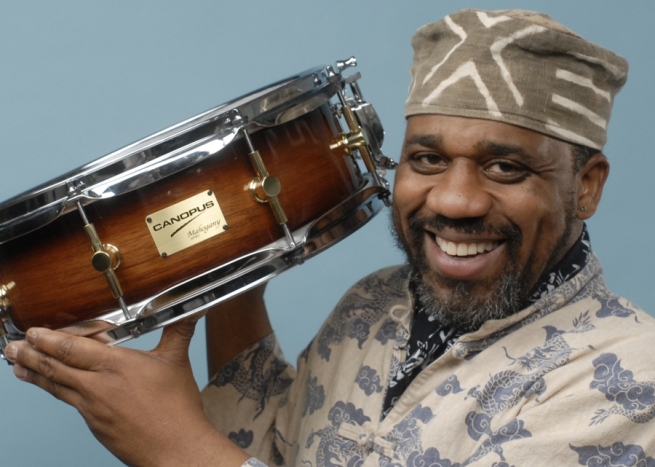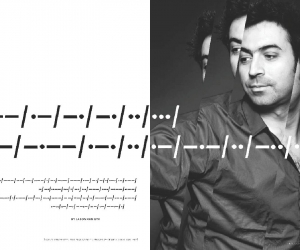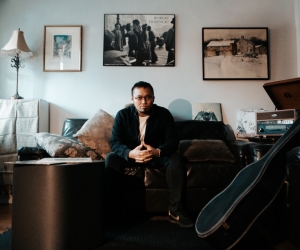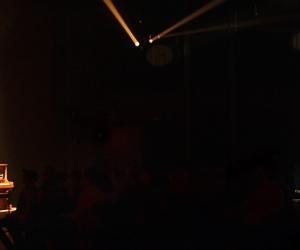
Pheeroan akLaff believes in drums first, rather than last. He can drive an ensemble forward with the machine-gun attack of his snare and the rolling thunder of his bass and toms, compounding and enriching the music with dense polyrhythms, or using the metallic shimmer of his cymbals to surmount it all with a luminous, celebratory grace. When akLaff speaks of the jazz drumming tradition, he speaks with the rhythmic energy of his drumming and the fluidity of a Beat poet. For him, it’s “piloting a fearless flight of one thousand passengers. It’s the sensation of conducting the breath and heartbeat of a joyous few, of having a tradition of mentor and devotee with a transcendental bond. It’s making others dance with you, making others hear what is not apparently audible or imaginable. It’s the forced humility from treatment as the least important member in the ensemble, when we know that we are the gesso in the painting.”
Since his emergence in the 1970s, akLaff is very often the drummer of choice for many of the most creative figures in African-American music. At this year’s Festival International Musique Actuelle Victoriaville (FIMAV), he played with Wadada Leo Smith as Smith debuted the portable version of his epic composition Ten Freedom Summers, his commemoration of the African-American struggle for equality. Smith hunched over his trumpet at stage left, dreadlocks tumbling over his white suit, while a screen behind the band projected Jesse Gilbert’s brilliant video analogue, presenting pixelated newspaper images of the heroes and martyrs of the civil rights movement (the brutalized adolescent Emmett Till, the assassinated Medgar Evers, Malcolm X and Martin Luther King) as still moments in a stream of moving abstract patterns, fractals, and topographical cross-sections.
Read more in the print edition.
Image by: Paul Aresu


